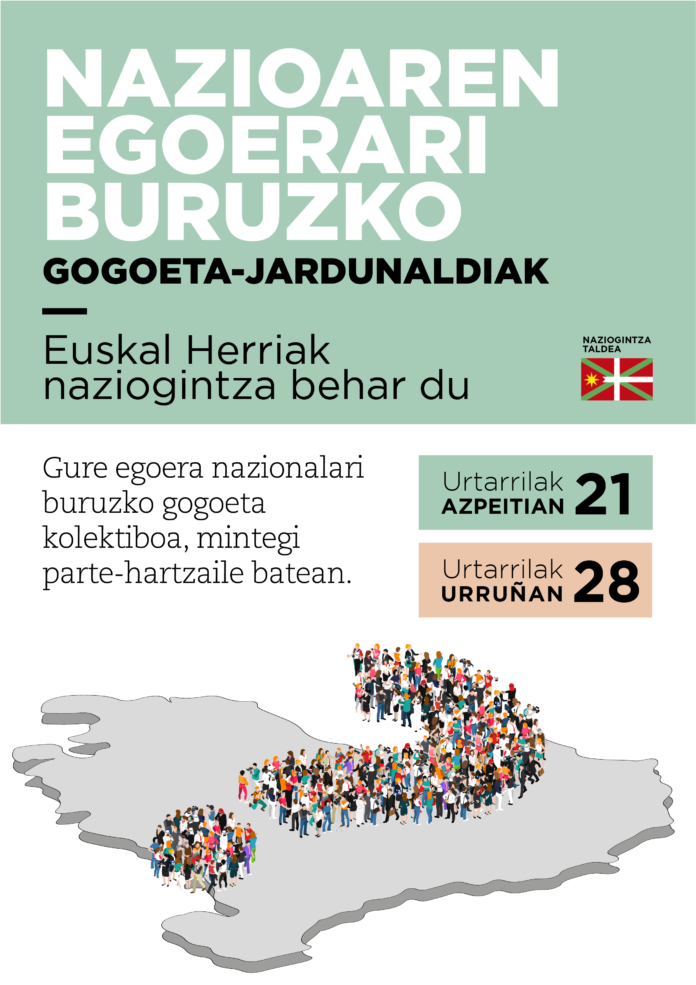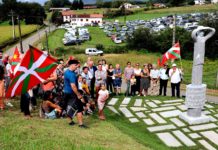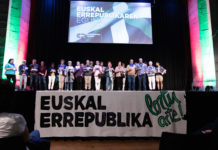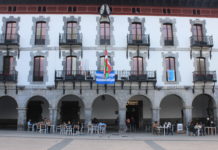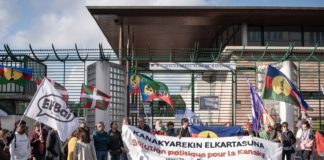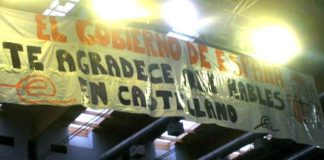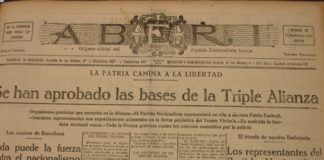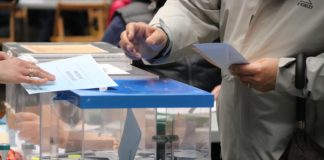Organized by Naziogintza Taldea, people from different sectors and intellectual fields held a meeting to share reflections on our national situation during two days in January, in Azpeitia and Urruña. For about 15 hours we had the opportunity to exchange many opinions on our linguistic, political and sociological situation, with a high degree of concurrence. The participants agreed that our nation is at a critical juncture and that it needs new dynamics to move forward, since one cycle has ended and we are very disoriented facing the new one.
There are many challenges ahead for the Basque nation: social, economic, demographic, cultural, ecological. …. But as far as nation-building is concerned, there are two main ones, which we analyzed in depth in our seminar: avoiding our national assimilation (into Spain and France), and achieving our full sovereignty.
It was clear from the seminar that national construction is essential in order to fight for a Basque state. If Basque national consciousness does not spread in our society, the Basque Country will hardly ever achieve its sovereignty.
Therefore, in order to take steps on the road towards a Basque state, we must strengthen and compact the Basque nation, reinforcing the characteristics that make us a nation (language, above all). In our seminar it became clear that language is the most effective weapon that oppressed peoples have to prevent their assimilation.
The goal of Spain and France is the total assimilation of the Basque nation, and for that they have developed over a long period a well-planned strategy. The firm position that Basque society has demonstrated to keep its national personality has been weakened a lot in recent times, and Spanish and French sociological and cultural references are being imposed among us. To neutralize this tendency, we must work on our national and state construction. We must develop our own thinking based in the Basque language, in order to eliminate foreign influences. And we must work for a Basque state, since this is essential to guarantee the survival of the Basque nation.
In our opinion, Basque nationalism should be the engine of independence. Welfare cannot be the main argument for independence, because this instrumental independence is variable and circumstantial. In addition to living well, the Basques wish to live comfortably in our own home, and not as nowadays, when we live as foreigners.
As far as the linguistic field is concerned, we view the situation with concern. The social use of the Basque language is weakening everywhere, especially in the most Basque-speaking areas (called arnasguneak). There is a lack of a national strategy in the language field, and the organizations working for the language are largely controlled by public institutions or political parties. Basque language activism has no institutional representation. And this activism has become very submissive, because the public institutions have seduced the organizations in defense of the language and because the people have believed the optimistic message launched by our politicians (“the situation of the Basque language is good; we are making progress“), which acts as a demobilizing factor. To reactivate activism, language pressure groups are needed, and new and ambitious proposals must be put forward.
One of these proposals was presented at the seminar: that of linguistic territoriality. In synthesis, this idea proposes the application of the principle of linguistic territoriality in the most Basque-speaking areas of our nation, as was done in Belgium, Switzerland or Canada. Those gathered at the seminar welcomed the proposal, because it would give practical content and legal coverage to these areas. However, the subject is complex, and must be explained well to Basque society to avoid mistrust and misunderstandings.
A special criticism was made of the Basque nationalist political parties: in the field of language they do not do enough, and the Basque language is not among their priorities.
Our socio-political situation is no better. In the Basque Country under Spanish administration, the nationalist parties have accommodated themselves to the state framework. Compared to Catalonia, there is no political conflict or confrontation with the two oppressor states here. Neither self-determination nor independence are on the agenda of the Basque nationalist parties, because others issues are now their priorities. In our opinion, the unilateral way is the one we should prioritize to start an independence process and materialize self-determination, since bilaterality (or trilaterality, since there are two states involved) is impossible when the relationship is not between equals.
There is nothing to agree with Spain and France on our self-determination. Because the objective of an independence movement should not be to convince the oppressor state, but to remove its legitimacy.
Finally, in order to unblock the problem of the territorial division of our nation, we consider it essential to compact the Basque nation. Through the networking of groups and institutions at the level of the whole Basque Country, promoting projects of national scope and, above all, strengthening the Basque language. Because our language is the most solid bond that compacts the Basque nation, what makes us a nation, what gives name and identity to the Basque Country (Euskal Herria).
This document has been endorsed by the following people:
Luken Etxabe (Azpeitia), Jose Inazio Lz. De Luzuriaga (Donostia), Eneko Bidegain (Hendaia), Joxe Manuel Odriozola (Donostia), Karmelo Landa (Bilbo), Josu Albero (Azpeitia), Miren Elizagarai (Barañain), Joseba Alvarez (Donostia), Tontxu Campos (Barakaldo), Jonjo Agirre (Altsasu), Patxi Otamendi (Agurain), Nerea Markaida (Bermeo), Benat Castorene (Uztaritze), Filipe Bidart (Baigorri), Elena Berazadi (Bera), Patxi Azparren (Pasaia), Edurne Alegria (Urruña), Naroa Sasieta (Agurain), Begotxu Olaizola (Zarautz), Iñaki Lz. De Luzuriaga (Lasarte), Ainara Maya (Irun), Asun Landa (Ea), Xabier Arregi (Donostia), Joxe Azurmendi (Donostia), Andoni Sarriegi (Beasain), Paulo Iztueta (Donostia), Xabier Irujo (Reno, Nevada), Garbiñe Ubeda (Hendaia), Jose Mari Pastor (Hernani), Ibai Iztueta (Gasteiz), Juan Martin Alegria (Alcanar), Maialen Pery (Ainhoa), Joanita Azurmendi (Donostia), Joxe Mari Azurmendi (Donostia), Urtzi Ihitza (Bilbo), Gilen Mejuto (Bilbo), Mikel Urkola (Donostia).

